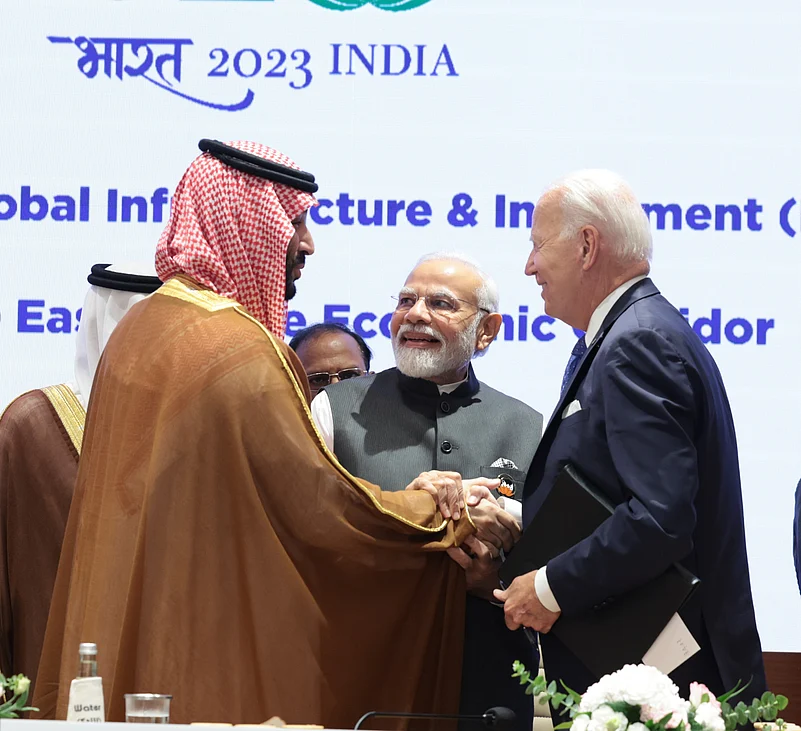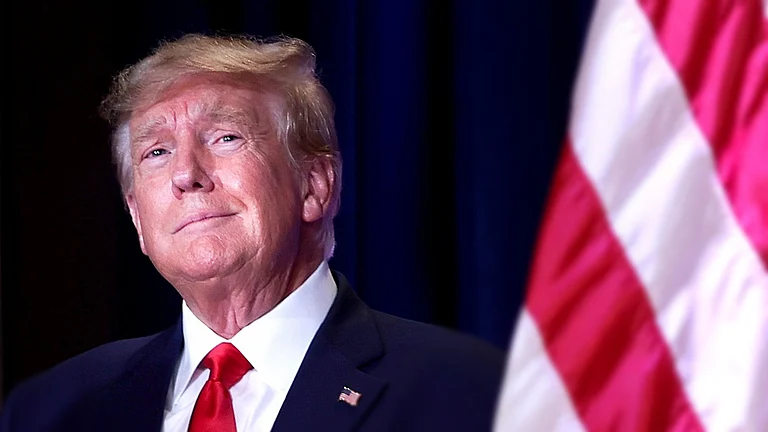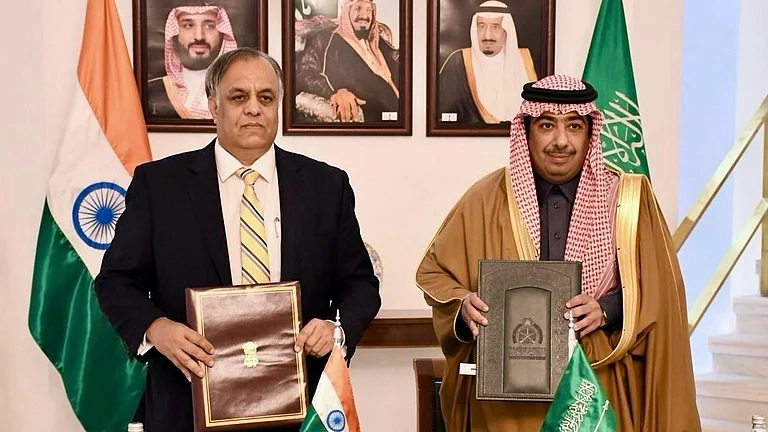Since the withdrawal of Israeli forces from Gaza in 2005, the attack on Saturday by the Palestinian group was one of the biggest attacks on Israeli territory. With Israeli Prime Minister Benjamin Netanyahu promising a strong response, the violence is not expected to calm down in the near future.
The conflict comes just a month after India, along with EU, Saudi Arabia and United States, announced the India-Middle East-Europe Corridor (IMEC) project at the G20 summit. Immediately after the recent attack on Israel, Indian Prime Minister Narendra Modi took to X and wrote, “Deeply shocked by the news of terrorist attacks in Israel. Our thoughts and prayers are with the innocent victims and their families. We stand in solidarity with Israel at this difficult hour.”
With the Arab world embroiled in conflict, concerns of its impact on the progress of IMEC project have been raised. As the tentative route is linked to Israel, the evolving situation can have an impact on the plan which was touted as India’s response to China’s Belt and Road Initiative.
Embroiled In Conflict
The tentative route, as available in several reports, of the corridor connects India to UAE through sea link. From UAE, the plan involves building of rail route which would pass through Saudi Arabia, Jordan and Israel. The corridor will be connected with Europe through a sea link with Israeli ports.
The latest conflict could complicate the matters among the grouping as the Arab states and western powers have different stands on the Israel-Palestine issue. Reacting to the new developments, a statement issued by Saudi Arabia’s Ministry of Foreign Affairs called for an end to violence. It added, “Saudi Arabia recalls its repeated warnings of the dangers of the situation exploding as a result of the continued occupation, the deprivation of the Palestinian people of their legitimate rights, and the repetition of systematic provocations against their sanctities.”
Meanwhile, United States has backed Israel and planned to send a carrier strike group in the Eastern Mediterranean. European Union issued a statement in support of Israel and said, “EU stands in solidarity with Israel which has the right to defend itself in line with international law, in the face of such violent and indiscriminate attacks.”
Jordan’s King Abdullah has reportedly called up other Arab nations’ leaders to discuss efforts to de-escalate the situation and reiterate support for the Palestinian cause.
While leaders of other nations call for de-escalation of situation, Netanyahu is facing pressure after Israeli security forces were caught off guard. The Prime Minister has said that Israel is at war. He added, “The enemy will pay an unprecedented price,” promising a strong response to the attack.
The entire plan for the IMEC project hasn’t been revealed yet. However, if Middle East is drawn into a prolonged conflict, it could have a bearing on the construction works for the corridor. As per the MoU of the project, it would be funded by G7’s Partnership for Global Infrastructure Investment (PGII) initiative.
With the differing stance of G7 nations and the Middle Eastern powers on the historic conflict between Israel and Palestine, questions have been raised about the prospects of the project.
As per reports in international media, United States was pushing Saudi Arabia to normalise its relations with Israel. NBC News reported that Saudi Crown Prince Mohammed bin Salman, Israeli Prime Minister Benjamin Netanyahu and US President Joe Biden had expressed agreement over normalisation of ties between Israel and Saudi Arabia.
Speculations have also been doing the rounds about Iranian hand behind the recent attack on Israel. Its President Ebrahim Raisi had told the American channel in an interview last month, “We are against any bilateral relations between our regional countries and the Zionist regime.”
India finds itself in a tough diplomatic spot as the country shares significant trade ties with several Arab nations and Israel. Amidst global headwinds due to slowdown in several economies, the new conflict can have an impact on external trade.
Impact on Trade?
According to Ministry of Commerce and Industry data, India’s exports to Israel grew by 76 per cent in the last fiscal. It grew from $4.7 billion to $8.4 billion. Imports from the country stood at $2.3 billion in FY23.
Experts tracking the sector are keeping an eye on any disruption at three major ports of Israel, Haifa, Ashdod and Eilat. Ajay Srivastava, former Indian Trade Service officer, and Founder, Global Trade Research Initiative, told The Hindu BusinessLine, “India’s trade with Israel, at about $10.7 billion in FY23, may be seriously impacted if operations at the three largest ports of Israel-Haifa, Ashdod; and Eilat are disrupted. These ports handle shipments in agricultural products, chemicals, electronics, machinery, and vehicles.”
While fingers are being pointed towards Iran for the planning of this attack with Hamas, there is a fear of impact on trade with the country. Notably, Hindustan Times had reported last week that India and Iran were close to finalising a long-term agreement for Chabahar Port after narrowing down differences.
Iran has come out in support of Palestine and rejected the allegations of its involvement in the attack. “The decisions made by the Palestinian resistance are fiercely autonomous and unwaveringly aligned with the legitimate interests of the Palestinian people,” Iran’s Mission to the United Nations told Amwaj media.
With the situation on the ground still evolving, the Indian government is keeping a close eye on the developments. How the latest round of violence impacts the country’s geopolitical goals in the region remains to be seen. Union Petroleum Minister Hardeep Singh Puri said earlier in the day, “The place where action is taking place is in many respects the centre of global energy... as we go along, we will navigate through this.”
































